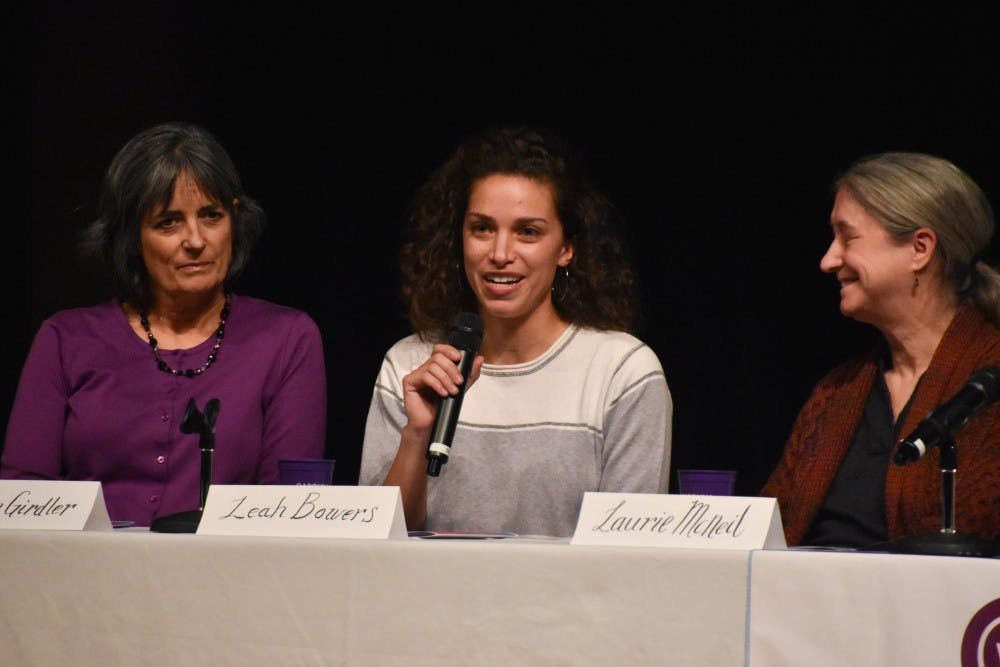The Carolina Women’s Center hosted a seminar about gender and STEM on Wednesday. Panelists disclosed their personal experiences about being a woman in a predominantly male field and shared advice for young women who plan to go into a STEM career.
Represented in the panel were professors and students in the chemistry, physics and astronomy, mathematics, psychiatry and psychology, computer science and biology departments.
Six women agreed that they have never experienced any "backlash" from being a woman in their department.
“I wouldn’t call it backlash,” said Laurie McNeil, a Bernard Gray distinguished professor in the Department of Physics and Astronomy. “It was more of confusion among the men in the department. I find more people are in the category I refer to as 'benign clueless' than are actually hostile to the kind of advances women are having.”
However, being a woman is not the only obstacle she had to face.
“I was the first female in my department on the faculty, but there was an additional aspect of that which was that there hadn’t been new hires on the faculty for quite some years so I was also significantly the youngest person in the department,” McNeil said. “It is (men in the department's) job to adjust to you, not you to adjust to their expectations.”
Sexual harassment is proven to be prevalent in STEM fields. According to the National Academies of Science, Engineering and Medicine, between 20 and 50 percent of female students in STEM majors and more than 50 percent of female faculty in STEM are estimated to have experienced sexual harassment, said Sheila Kannappan, an associate professor in the Department of Physics and Astronomy.
Of those that took a survey administered by the Allies for Minorities and Women in Science and Engineering, 13 percent reported they were told remarks about their physical appearance, said Leah Bowers, a Ph.D. candidate in chemistry.
“The Allies for Women and Minorities in Science and Engineering is an organization that advocates for graduate students and post-docs in the graduate school here at UNC,” Bowers said. “By doing that, we are largely helping graduate, but even more so, graduate students who are on the margins.”




